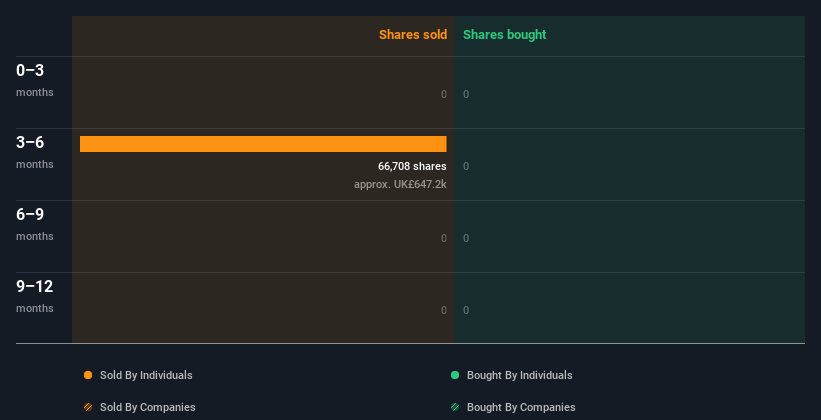27% Of This Pearson Insider's Holdings Were Sold
Insiders were net sellers of Pearson plc's (LON:PSON ) stock during the past year. That is, insiders sold more stock than they bought.
While we would never suggest that investors should base their decisions solely on what the directors of a company have been doing, we do think it is perfectly logical to keep tabs on what insiders are doing.
Check out our latest analysis for Pearson
Pearson Insider Transactions Over The Last Year
In the last twelve months, the biggest single sale by an insider was when the CFO & Executive Director, Sally Kate Johnson, sold UK£648k worth of shares at a price of UK£9.71 per share. That means that an insider was selling shares at slightly below the current price (UK£10.30). As a general rule we consider it to be discouraging when insiders are selling below the current price, because it suggests they were happy with a lower valuation. However, while insider selling is sometimes discouraging, it's only a weak signal. It is worth noting that this sale was only 27% of Sally Kate Johnson's holding. Sally Kate Johnson was the only individual insider to sell over the last year.
You can see the insider transactions (by companies and individuals) over the last year depicted in the chart below. By clicking on the graph below, you can see the precise details of each insider transaction!

If you are like me, then you will not want to miss this free list of small cap stocks that are not only being bought by insiders but also have attractive valuations.
Insider Ownership
I like to look at how many shares insiders own in a company, to help inform my view of how aligned they are with insiders. A high insider ownership often makes company leadership more mindful of shareholder interests. Pearson insiders own about UK£14m worth of shares. That equates to 0.2% of the company. While this is a strong but not outstanding level of insider ownership, it's enough to indicate some alignment between management and smaller shareholders.
So What Does This Data Suggest About Pearson Insiders?
There haven't been any insider transactions in the last three months -- that doesn't mean much. Still, the insider transactions at Pearson in the last 12 months are not very heartening. But we do like the fact that insiders own a fair chunk of the company. So while it's helpful to know what insiders are doing in terms of buying or selling, it's also helpful to know the risks that a particular company is facing. In terms of investment risks, we've identified 1 warning sign with Pearson and understanding it should be part of your investment process.
But note: Pearson may not be the best stock to buy. So take a peek at this free list of interesting companies with high ROE and low debt.
For the purposes of this article, insiders are those individuals who report their transactions to the relevant regulatory body. We currently account for open market transactions and private dispositions of direct interests only, but not derivative transactions or indirect interests.
Have feedback on this article? Concerned about the content? Get in touch with us directly. Alternatively, email editorial-team (at) simplywallst.com.
This article by Simply Wall St is general in nature. We provide commentary based on historical data and analyst forecasts only using an unbiased methodology and our articles are not intended to be financial advice. It does not constitute a recommendation to buy or sell any stock, and does not take account of your objectives, or your financial situation. We aim to bring you long-term focused analysis driven by fundamental data. Note that our analysis may not factor in the latest price-sensitive company announcements or qualitative material. Simply Wall St has no position in any stocks mentioned.
 Index Options
Index Options CME Group
CME Group Nasdaq
Nasdaq Cboe
Cboe TradingView
TradingView Wall Street Journal
Wall Street Journal